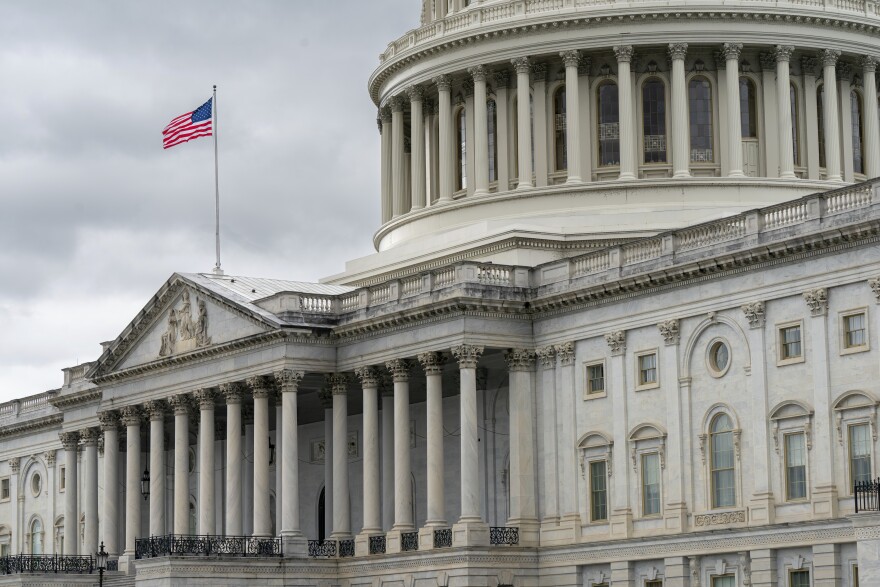In six days, the government runs out of money; Republicans have a narrow majority in the U.S. House, and some of its most conservative members are blocking efforts to pass budget bills that are needed .
At stake is not only the government’s ability to make payments on what it owes after Oct. 1 – by the end of it all, there could be some significant political changes at the Capitol, too, depending on the outcome of this looming government funding fight. And some prominent Texans are digging in their heels.
Brandon Rottinghaus, political science professor at the University of Houston, joined the Standard to break down what a government shutdown would mean for Texans.
This transcript has been edited lightly for clarity:
Texas Standard: You know, I think that a lot of people think, “well, I’ve been here before. We’ve heard about government shutdowns.” You know, talk about your deja vu. Why is this a continual problem for the U.S.?
Brandon Rottinghaus: Well, the kind of shorter-term answer is that this is just gridlock on full display … we’ve got frozen politics in Washington. The bigger issue is that, frankly, this is the way things are supposed to be.
You’ve got the Constitution set up to basically engender these fights. You’ve got House and Senate differences, potentially – they’re going to create this divide. You’ve got inter-party differences, which because of the way the parties are developed and they become more polarized, they’re demanding more of their own actions to be conducted. And so people like the speaker are worried that they can’t wrangle the far right of their own party. And that’s creating this general divide and then shutdown.
We’re talking about House Speaker Kevin McCarthy, who runs a risk of, what, he has to either cross Republican hardliners by working with Democrats in the House – and frankly, in the Senate, because he’s got to build support for some kind of short-term spending package – or what? Is there the potential that he could lose his job as speaker?
It’s possible. In order to become speaker, he had to essentially create this Faustian bargain where they agreed to a proposal that if any one member wanted to introduce a resolution to vacate the chair, which is to trigger a vote on the Speaker, they could do that. So basically every member of the far right is walking around with one of these in their pocket. In fact, we saw last week Matt Gaetz . And so it’s not surprising this is where we are.
I think the speaker is looking for a way forward. He’s trying to put together a series of bills that he hopes can get some consensus. The problem is, if he can’t, then it’s going to be potentially triggered that the whole House has to vote in, and if they have to vote, the Democrats have got more power. At this point, I think he’s sort of at a stage where they’ll throw anything against the wall and just see what sticks.
Some Republicans in the House are saying, “don’t let D.C. scare you into thinking that a government shutdown is the end of the world.” I’m just reading a post from social media by a Republican named Andy Biggs, a congressperson from Arizona, who says the “.” Well, so, if you’re in Texas, how concerned should you really be about a government shutdown? What sort of effects could it have?
They can have pretty wide-ranging effects. And although obviously it’s mostly temporary – the last times we’ve seen this happen, like in 2013 and 2018-19, we saw fairly rapid return to normalcy – it’s still the case that programs are going to be slowed.
So you’re going to have passport renewals and citizenship applications potentially impacted. You’re going to have SNAP benefits that may not be sent out. Immigration issues may come up. Disruptions in certifying certain kind of visas are likely; potentially pauses in veterans benefits of certain kinds.
So there are going to be ramifications to this. And although, like we said, probably temporary, it’s a potential challenge for the Republicans that they’re trying to essentially pick fights they can’t win. They’re going to try to minimize the spending government, which is something that mostly the parties both agreed to last year; they going to try to reduce funding for spending in the military on Ukraine. So these are definitely fights that are going to be hard for the House to win because it’s still got to go to the Senate and the White House, who are both against it.
There’s nothing stopping the Senate, though, from advancing a short-term spending bill, right? Chuck Schumer, I think, tried to do just that. It would include like disaster aid, additional funding for the war in Ukraine. But then you would have to have the speaker put that before members of the House, and that could be politically perilous for him.
I think you’re exactly right. And as you know, we’ve seen the Senate move on this. They’d like to get this done. White House and Appropriations Committee staffers have been on these talks to try to basically kick the can down the road.
The hope is that if they can get some cover, then they can spend some more time trying to figure out exactly what the spending levels should be. That’s actually pretty much what the speaker would like to do. But the problem is that you’ve got lots of members of his own party who want to be able to make a point. And sometimes making that point can be challenging for moving legislation forward.
If you found the reporting above valuable, please consider making a donation to support it . Your gift helps pay for everything you find on and . Thanks for donating today.

